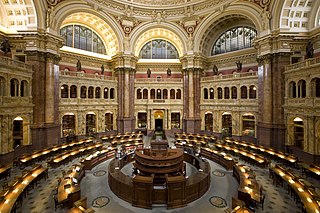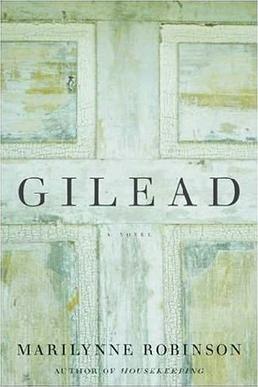
John Hoyer Updike was an American novelist, poet, short-story writer, art critic, and literary critic. One of only four writers to win the Pulitzer Prize for Fiction more than once, Updike published more than twenty novels, more than a dozen short-story collections, as well as poetry, art and literary criticism and children's books during his career.

Karen Louise Erdrich is an American author of novels, poetry, and children's books featuring Native American characters and settings. She is an enrolled member of the Turtle Mountain Band of Chippewa Indians, a federally recognized tribe of Ojibwe people.

Carol Ann Shields was an American-born Canadian novelist and short story writer. She is best known for her 1993 novel The Stone Diaries, which won the U.S. Pulitzer Prize for Fiction as well as the Governor General's Award in Canada.
This article contains information about the literary events and publications of 2003.

American literature is literature written or produced in the United States of America and in the colonies that preceded it. The American literary tradition is part of the broader tradition of English-language literature, but it also includes literature produced in the United States in languages other than English.
William Joseph Kennedy is an American writer and journalist who won the 1984 Pulitzer Prize for his 1983 novel Ironweed.
Edward Paul Jones is an American novelist and short story writer. He received the Pulitzer Prize for Fiction and the International Dublin Literary Award for his 2003 novel The Known World.

Southern United States literature consists of American literature written about the Southern United States or by writers from the region. Literature written about the American South first began during the colonial era, and developed significantly during and after the period of slavery in the United States. Traditional historiography of Southern United States literature emphasized a unifying history of the region; the significance of family in the South's culture, a sense of community and the role of the individual, justice, the dominance of Christianity and the positive and negative impacts of religion, racial tensions, social class and the usage of local dialects. However, in recent decades, the scholarship of the New Southern Studies has decentralized these conventional tropes in favor of a more geographically, politically, and ideologically expansive "South" or "Souths".
African American literature is the body of literature produced in the United States by writers of African descent. It begins with the works of such late 18th-century writers as Phillis Wheatley. Before the high point of enslaved people narratives, African American literature was dominated by autobiographical spiritual narratives. The genre known as slave narratives in the 19th century were accounts by people who had generally escaped from slavery, about their journeys to freedom and ways they claimed their lives. The Harlem Renaissance of the 1920s was a great period of flowering in literature and the arts, influenced both by writers who came North in the Great Migration and those who were immigrants from Jamaica and other Caribbean islands. African American writers have been recognized by the highest awards, including the Nobel Prize given to Toni Morrison in 1993. Among the themes and issues explored in this literature are the role of African Americans within the larger American society, African American culture, racism, slavery, and social equality. African-American writing has tended to incorporate oral forms, such as spirituals, sermons, gospel music, blues, or rap.

Gilead is a novel written by Marilynne Robinson published in 2004. It won the 2005 Pulitzer Prize for Fiction and the National Book Critics Circle Award. It is Robinson's second novel, following Housekeeping (1980). Gilead is an epistolary novel, as the entire narrative is a single, continuing, albeit episodic, document, written on several occasions in a form combining a journal and a memoir. It comprises the fictional autobiography of John Ames, an elderly, white Congregationalist pastor in the small, secluded town of Gilead, Iowa, who knows that he is dying of a heart condition. At the beginning of the book, the date is established as 1956, and Ames explains that he is writing an account of his life for his seven-year-old son, who will have few memories of him. Ames indicates he was born in 1880 and that, at the time of writing, he is seventy-six years old.

Junot Díaz is a Dominican-American writer, creative writing professor at Massachusetts Institute of Technology, and a former fiction editor at Boston Review. He also serves on the board of advisers for Freedom University, a volunteer organization in Georgia that provides post-secondary instruction to undocumented immigrants. Central to Díaz's work is the immigrant experience, particularly the Latino immigrant experience.

David Ebershoff is an American writer, editor, and teacher. His debut novel, The Danish Girl, was adapted into an Academy Award-winning film of the same name in 2015, while his third novel, The 19th Wife, was adapted into a television movie of the same name in 2010.

David Brion Davis was an American intellectual and cultural historian, and a leading authority on slavery and abolition in the Western world. He was a Sterling Professor of History at Yale University, and founder and director of Yale's Gilder Lehrman Center for the Study of Slavery, Resistance, and Abolition.

The Road is a 2006 post-apocalyptic novel by American writer Cormac McCarthy. The book details the grueling journey of a father and his young son over a period of several months across a landscape blasted by an unspecified cataclysm that has destroyed industrial civilization and almost all life. The novel was awarded the 2007 Pulitzer Prize for Fiction and the James Tait Black Memorial Prize for Fiction in 2006. The book was adapted into a film of the same name in 2009, directed by John Hillcoat.

Gayl Carolyn Jones is an American writer from Lexington, Kentucky. She is recognized as a key figure in 20th-century African-American literature.

The Corrections is a 2001 novel by American author Jonathan Franzen. It revolves around the troubles of an elderly Midwestern couple and their three adult children, tracing their lives from the mid-20th century to "one last Christmas" together near the turn of the millennium. The novel was awarded the National Book Award in 2001 and the James Tait Black Memorial Prize in 2002.

Redeployment is a collection of short stories by American writer Phil Klay. His first published book, it won the 2014 National Book Award for Fiction and the National Book Critics Circle's 2014 John Leonard Award given for a best first book in any genre.

The Sympathizer is the 2015 debut novel by Vietnamese-American professor and writer Viet Thanh Nguyen. It is a best-selling novel, and recipient of the 2016 Pulitzer Prize for Fiction. The novel received generally positive acclaim from critics, it was named on more than 30 best book of the year lists and a New York Times Editor's Choice.

The Underground Railroad is a historical fiction novel by American author Colson Whitehead, published by Doubleday in 2016. The alternate history novel tells the story of Cora, a slave in the Antebellum South during the 19th century, who makes a bid for freedom from her Georgia plantation by following the Underground Railroad, which the novel depicts as a rail transport system with safe houses and secret routes. The book was a critical and commercial success, hitting the bestseller lists and winning several literary awards, including the Pulitzer Prize for Fiction, the National Book Award for Fiction, the Arthur C. Clarke Award, and the 2017 Andrew Carnegie Medal for Excellence. A TV miniseries adaptation, written and directed by Barry Jenkins, was released in May 2021.

The Nickel Boys is a 2019 novel by American novelist Colson Whitehead. It is based on the historic Dozier School, a reform school in Florida that operated for 111 years and was revealed as highly abusive. A university investigation found numerous unmarked graves for unrecorded deaths and a history into the late 20th century of emotional and physical abuse of students.


















